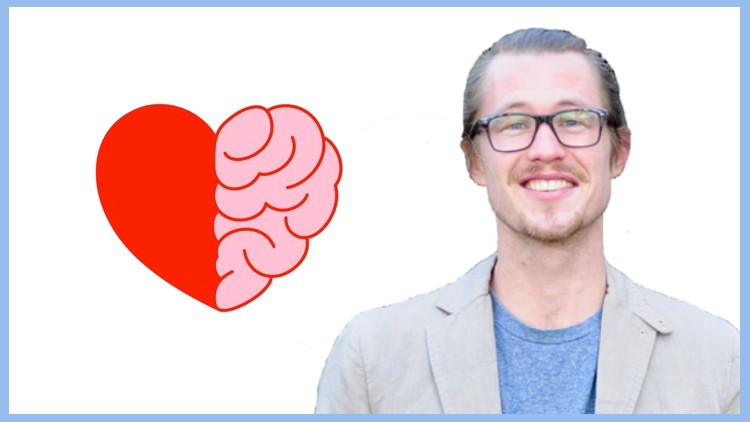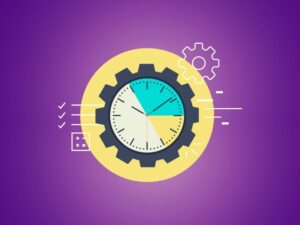Rational Compassion Masterclass: Critical thinking for good
- Description
- Curriculum
- FAQ
- Reviews
- Grade

A FEW QUESTIONS
Do you ever feel defeated, like no matter how much you care and how hard you try to make the world a better place, you never quite see the results you’re hoping for?
Do you ever feel overwhelmed by the magnitude of issues facing humanity, nonhuman animals, and the environment we all share, like they’re just too big to possibly do anything about as just one person?
Do you try to recycle, avoid plastic bags, take shorter showers, consume consciously and want to do SO much more, but you just don’t know how to do good effectively, what actually works, or even where to start?
Are you ever frustrated by your inability to persuade people to do less harm and live more benevolent lives, wondering why they refuse to listen and improve?
Do you ever realize you were far too optimistic or pessimistic about the probability a proposed solution will actually solve a problem, and then question how your mind allowed you to be so far off when you felt so confident?
I’VE BEEN THERE, I PROMISE
And I spent a decade in 70-some countries as a senior-level humanitarian aid worker, advocacy advisor and consultant researching and compiling clues, investigating how one individual can most effectively impact positive change in the world and persuade others to do the same.
I researched these vital questions: How to do good better? How to make a difference that lasts? How to take action that makes an impact? How to change the world? More specifically: How can I do good better? How can I make a difference that lasts? How can I take action that makes an impact? How can I change the world? How can I be the change?
And my biggest finding: RATIONAL COMPASSION HAS THE ANSWERS.
Rational compassion is the intersection between critical thinking and heartfelt empathy, where our benevolent hearts are guided by our more logical brains, where we’ve upgraded from our flawed mental software, and where we take action to consciously impact change, not to subconsciously feel less burdened by the issues we care about most.
Rarely do harmful issues persist in the world because no one cares. Rather, issues persist because people want to solve them but just don’t know how. And more often than not, straightforward solutions exist, but we’re blinded by our cognitive biases and victim to logical fallacies that prevent us from: first, comprehending the issues; second, understanding how we relate to the issues; and third, learning how to most effectively contribute our unique assets, as individual changemakers, to the solution.
BY THE END OF THIS COURSE, YOU WILL USE:
-
Critical thinking to… identify and overcome dangerous cognitive biases, logical fallacies and other common misconceptions that render ineffective changemakers
-
Critical thinking to… dissect the key complexities of causes and issues (both global and local) that cause harm to humans, nonhuman animals and the environment
-
Critical thinking to… understand how you relate to these issues and which solutions you’re empowered to contribute to
-
Critical thinking to… maximize your positive impact per unit of effort exerted, your ROI if you were a resource for change
-
Critical thinking to… calculate both the impact and footprint of your choices and actions, both negative and positive
-
Critical thinking to… multiply Your impact by 10x, 100x, 1,000x by doing good smarter, not working harder
-
Critical thinking to… take action for causes, volunteer for nonprofits, donate to charity, and utilize careers and pastimes in the most high impact intelligent ways we can
-
Critical thinking to… balance a joyful life with a high impact life — neurologist’s and psychologist’s formula for happiness and lasting fulfillment
The uncritical mind is optimized for making itself feel better about what burdens it. We do this by adjusting our perceptions of that burden, not by taking actions to improve upon the undesirable reality that burdens us to begin with. We convince ourselves we’re all charities are cur
A mind exercising rational compassion is optimized to solve problems instead of hiding from them, to address the root of that burden, to impact positive change highly effectively and efficiently.
In a sense, we are each resources for change. So why not invest ourselves wisely? This starts with optimizing our minds not to hide from its burdens, but to address them with high impact actions that do good, better.
RATIONAL COMPASSION KEY CONCEPTS WE’LL EXPLORE:
-
Compassion vs empathy
-
Counterfactual reasoning
-
Expected value theory
-
Doing good vs the MOST good (and the 100x multiplier effect)
-
Average vs marginal impact
-
Intentions vs. outcomes
-
The “less-harm limitation”
-
Our conceptual value systems vs those demonstrated by our actions
-
Self-regarding vs other-regarding actions
-
Social circles vs global circles
-
Push vs pull decision making
-
Actualism vs possiblism
-
Anthropomorphism, anthropocentrism, carnism, and speciesism
-
Moral licensing effect
-
False dichotomy fallacy
-
Identifiable victim effect
-
Scope insensitivity bias
-
Omission bias
-
Selective Perception and confirmation bias
-
…and many more!
HERE’S THE BOTTOM LINE…
Our brains come preprogramed with heuristics, mental shortcuts to conserve time and energy at the expense of accuracy. These heuristics guarantee suboptimal reasoning in our choices and actions UNLESS we choose to identify them and purposefully overcome them. When the difference between doing some good (with suboptimal reasoning) and the MOST good (with critical thinking and applied rationality — Rational Compassion) is not 2x but often 100X or 1000X the impact, then is there any better investment we can make in alleviating suffering and improving the world than learning to think critically and exercise our compassion rationally?
So, if you’d prefer to truly make a difference, prevent avoidable deaths / actually save lives, alleviate quantifiable amounts of suffering and promote wellbeing as a direct result of your time, energy and resources used intelligently, THEN ENROLL IN THIS MASTERCLASS NOW! The world needs us right now as much as it ever has before, so no more waiting for the right opportunity to start being the change you want to see in the world. Be the change today, starting right now!
I’ll leave you with one of the best pieces of advice I’ve ever been given. It went something like this: “Every single day you wait to experience or learn something valuable is one more day lived unaware, and one less day the world benefits from your wisdom.”
I HOPE YOU REFUSE TO WASTE ANOTHER DAY AND THAT YOU ENROLL RIGHT NOW! The world is waiting for your most rational compassion, and I’ll be waiting for you inside!
WHO IS THIS COURSE FOR?
-
This course is for anyone who believes in working smarter, not harder
-
This course is for anyone who wants to utilize their empowered and fortunate position in the world to leave behind a humanity and planet that is, to the greatest degree, better off as a direct result of their having lived their lives
-
This course is for anyone who believes critical thinking on the topics of alleviating suffering and promoting wellbeing is the realest form of empathy
-
This course is for anyone who cares enough about their impact on the world to invest a few hours in learning how to maximize it
-
This course is for truth seekers, effective altruists and aspiring changemakers
-
This course is NOT for people who prefer a more convenient falsehood over a less convenient truth
-
1WELCOME: How Rational Compassion will help you do good smarter, not work harder
-
2Rational Compassion vs Emotional Empathy
-
3Course BONUSES (47-Part PDF Guide & Audio Version Downloads)
-
4Do Positive Intentions Equate to Positive Outcomes?
-
5IMPACT HACK #1: 100x Multiplier Effect
-
6You are a resource for change. Optimize your Return On Investment.
-
7Counterfactual Reasoning: What would have happened otherwise?
-
8CREATING a Difference vs Participating in Change
-
9CASE STUDY: How many lives does a doctor ACTUALLY save?
-
10The Valuation of a Life: An astronaut's perspective
What's a life work in your neighborhood vs a country you've never been to?
-
1180/20 Altruism: Using the Pareto Principal to do good efficiently
-
12Critical Thinking on the Margins: Average vs marginal impact
-
13Who Are Your Target Beneficiaries and Are They Actually Benefitting Most?
-
14Differentiate Between Self-Regarding and Other-Regarding Actions
-
15Social-Circles vs Global-Circle: Who can you reach and how to impact-prioritize?
-
16Community First or Global Priorities: Philanthrolocalism vs Effective Altruism
-
17IMPACT HACK #2: The Altruist Jar
-
18The "Less-Harm Limitation" : Limit your harm AND do more good
-
19IMPACT HACK #3: Offset your environmental footprint for $105
-
20Push-Pull Reasoning in Decision Making: What you can offer vs what's needed most
-
21Expected Value Theory: Navigating uncertainty when doing good
-
22Changemaker Roles: The Implimenter, the Financier and the Influencer
-
23Heuristics and Our Bugged Mental Software: Intro to biases and fallacies
-
24Moral Licensing: The moral credibility to act immoral
-
25Identifiable Victim Effect: Helping who we see, not who needs it the most
-
26Thousands of Birds
This will be the easiest quiz you'll ever take, promise!
-
27Scope Insensitivity Bias: An individual vs the masses
-
28Omission Bias: Actions vs inaction
-
29GAME: how many times do the players in white pass the basketball?
-
30Selective Perception and Confirmation Bias: Seeing what we're looking for
-
31CASE STUDY: Scared Straight! and Survivorship Bias
-
32Anthropomorphism and Speciesism: Our deadliest bias
-
33IMPACT HACK #4: Reducetarianism and Flexitarianism
-
34False Dichotomy Fallacy: Two approaches to doing good, at the same time
-
35Beware of Bumper Stickers and Echo Chambers: Skepticism of the oversimplified
-
36Critical Thinking into Critical Acting: Take action intelligently
-
37How to Choose the Best Causes to Support: High-impact cause-prioritization
-
38How to Donate Effectively to the BEST Charities and Most High-Impact Nonprofits
-
39BONUS: My Personal Donation Recommendations and Philosophy (optional lecture)
-
40How to Volunteer Effectively: Maximize your added value and impact
-
41High-Impact Changemaker Career Considerations: Which jobs make a difference?
-
42High-Impact Advocacy Strategies for Everyone, Every Day
-
43Actualism vs Possiblism: Being ambitious yet pragmatic
-
44Building Mental Capital in the Meantime: Impactful pastimes












